14 Most Convincing Evidence of Transportation Collapse in Moscow
Categories: Auto
By Pictolic https://pictolic.com/article/14-most-convincing-evidence-of-transportation-collapse-in-moscow.htmlAccording to a recent study by Yandex.Traffic, over the past couple of years, the transport situation in the capital has not only not improved, but has worsened noticeably: for example, in 2011 it took an average of 25 minutes to drive along the Leningradskoye Highway, and now this journey takes 42 minutes. Experts report that the reason for this is both the extremely imperfect infrastructure of the metropolis and the significant replenishment of the Moscow car fleet.
After a relatively free summer months, in September the city was almost paralyzed. In the past few days, motorists have lost hours in unrealistic traffic jams, and traffic jams have been observed in the subway no less.
(Total 14 photos)
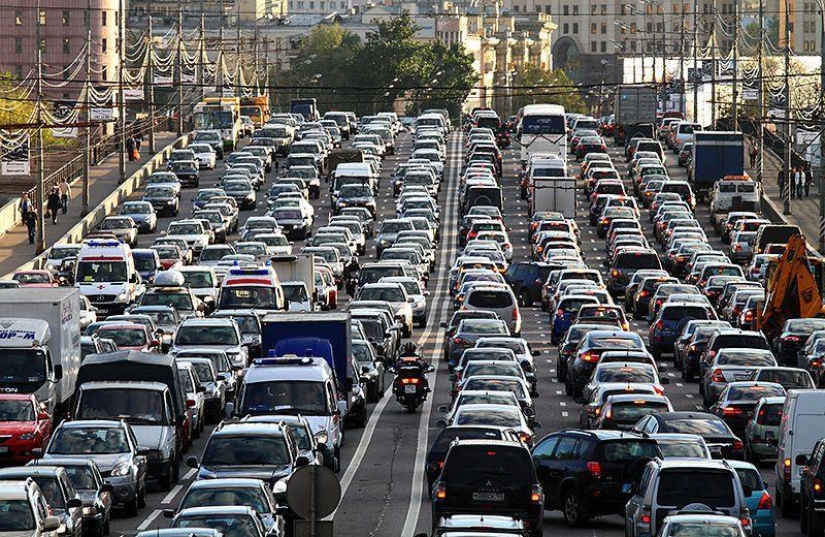
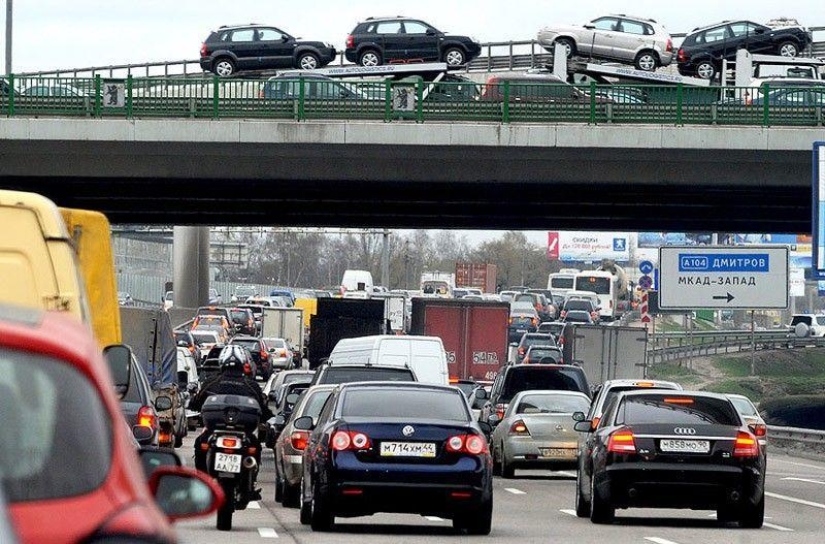
1. Cars “rush” along the “super-fast” ring road of the Moscow Ring Road (© ITAR-TASS / Grigory Sysoev)
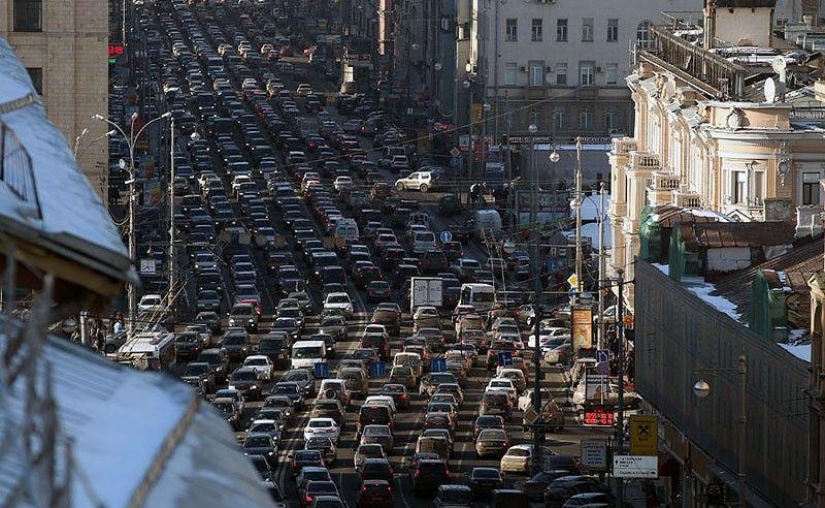
2. The pace of traffic in the center of the capital leaves no chance of getting anywhere on time.
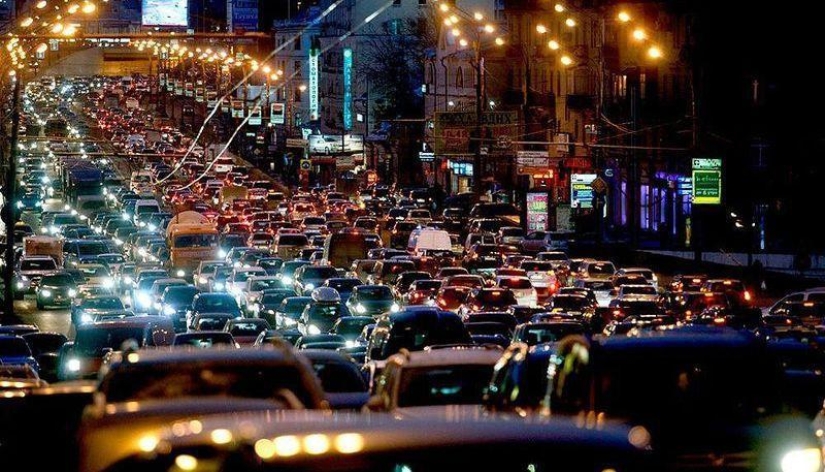
3. Being under the illumination of the red brake lights of the cars in front for hours, drivers probably remember the mayor's promises from 2010 about the complete and speedy elimination of traffic jams ...

4. By the way, at first the media even published official reports about the “positive results of the measures taken to improve the transport system” of the city.
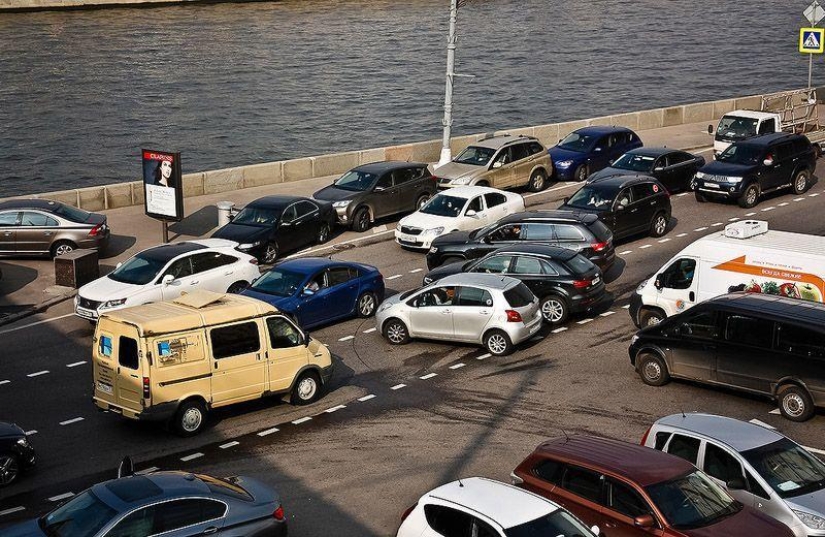
5. Everything is mixed up at one intersection - both traffic jams and parking.
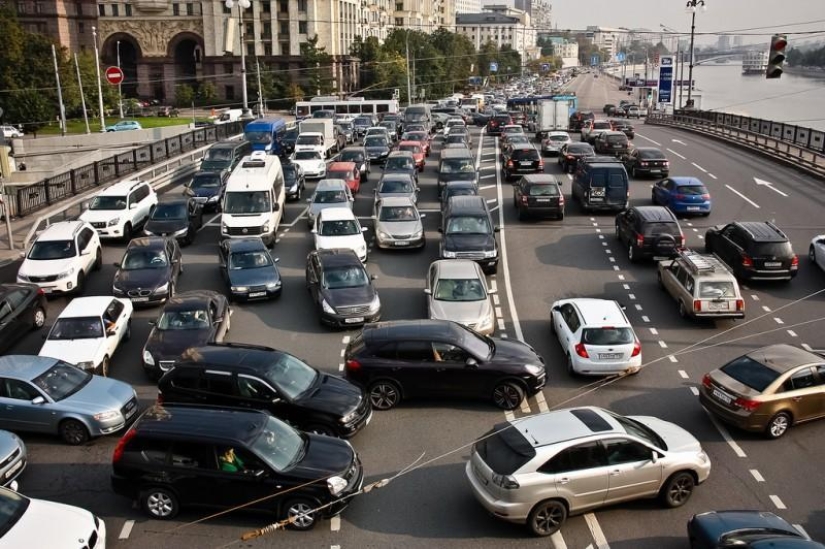 6. They say that many European motorists, having tried to drive a car in Moscow, very quickly give up this risky and difficult occupation. And they can be understood.
6. They say that many European motorists, having tried to drive a car in Moscow, very quickly give up this risky and difficult occupation. And they can be understood.
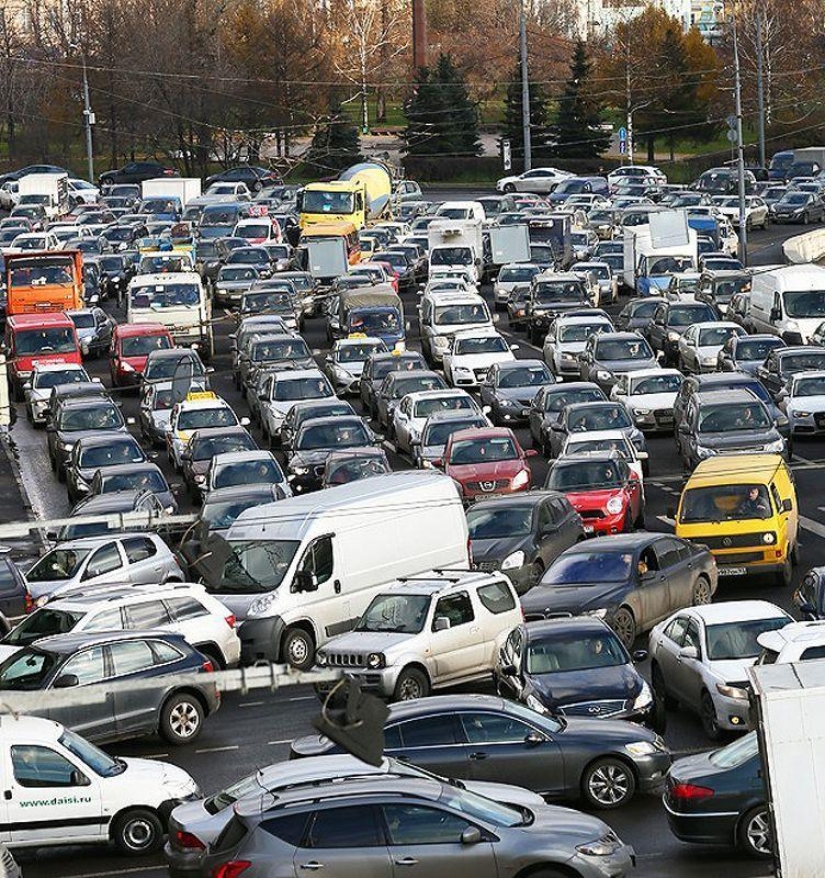
7. And with all this, the Yandex.Probki system regularly informs interested drivers that “road congestion is minimal” or modest “traffic is difficult.” Although in August representatives of this company rejected accusations of understating the scoring system for estimating traffic jams, their optimistic forecasts are less and less trustworthy.
The city authorities regularly offer Muscovites and guests of the capital who are in a hurry to get to work or other destinations to use the metro. Let's follow the advice of the mayor's office and go down to our subway.
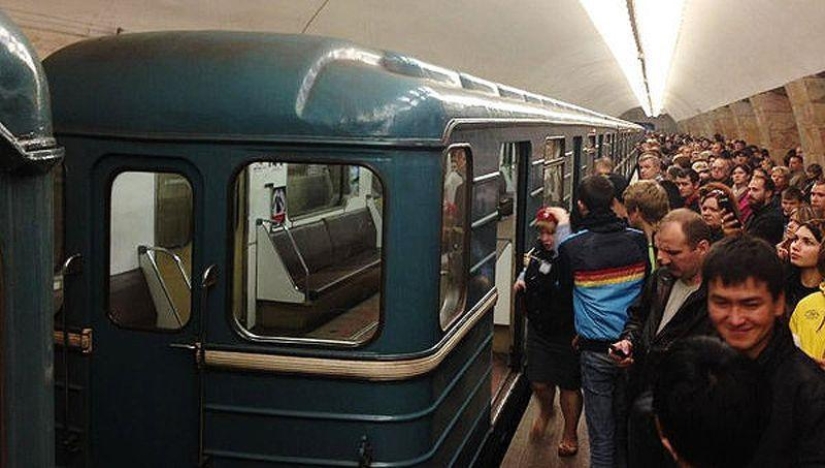
8. Here the movement is also extremely difficult, sometimes due to the recent frequent failures in the operation of the subway.
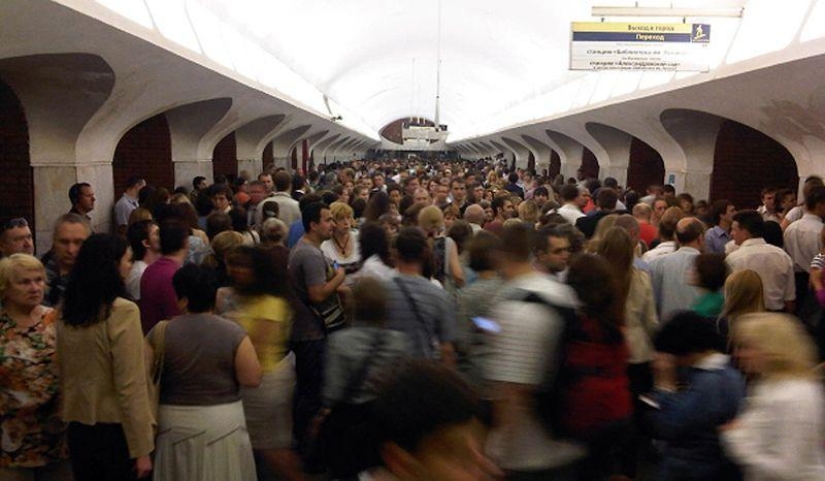
9. And also because of the multi-million passenger traffic - on average, the metropolitan metro transports 8,000,000 people a day, while since the beginning of 2012, 1.579 billion people have used underground transport! And according to experts, its technical capabilities have long been exceeded and require significant investment and upgrades.
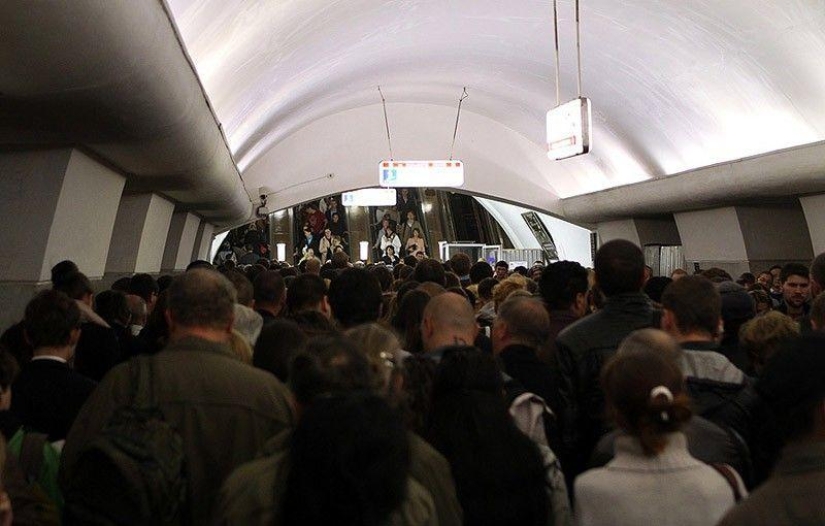
10. Collapse on the ill-fated gray branch.
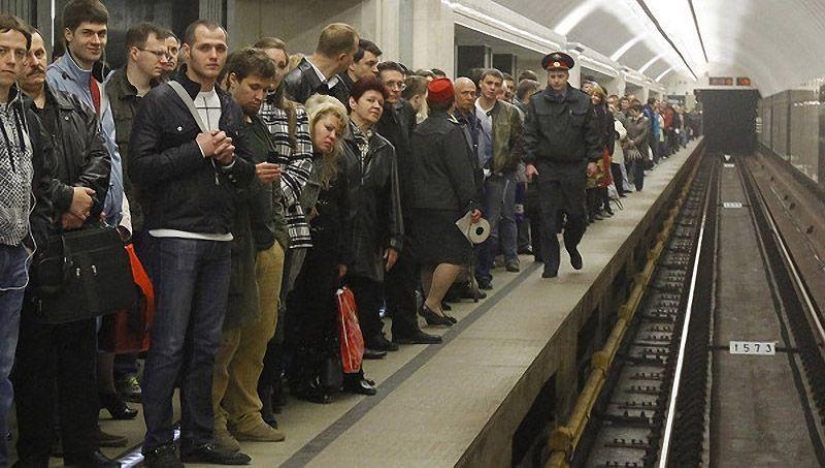
11. During the morning rush hour, those who want to get to work have to wait for 30-40 minutes, skipping trains that are packed to capacity.
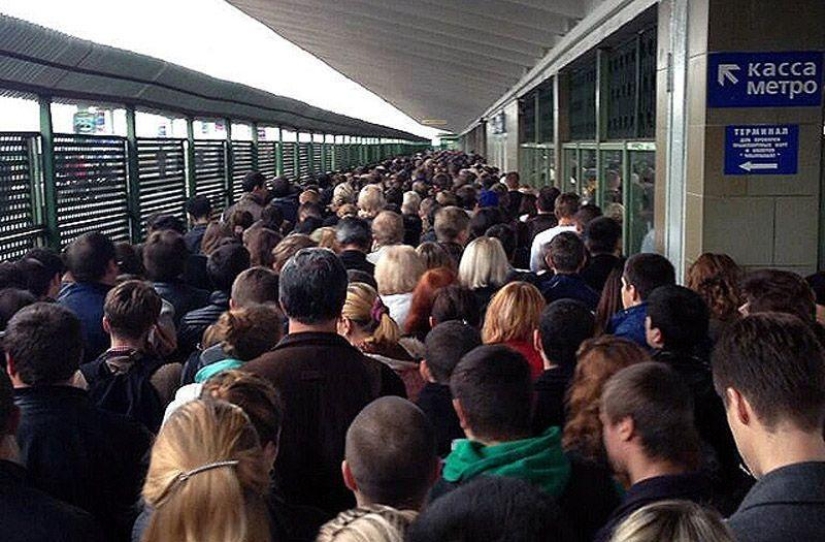
12. And it's not entirely clear how to deal with it.
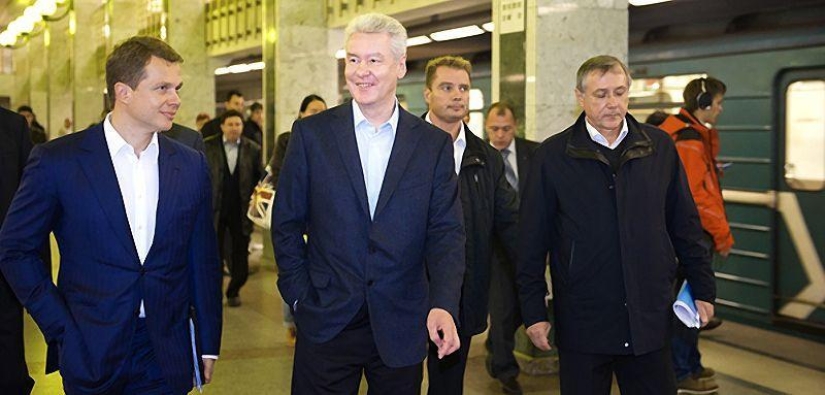
13. It is good that Sergei Semenovich did not have to push with other passengers during his visit to the subway on September 18, by the time of his visit the crowd had miraculously dispersed.
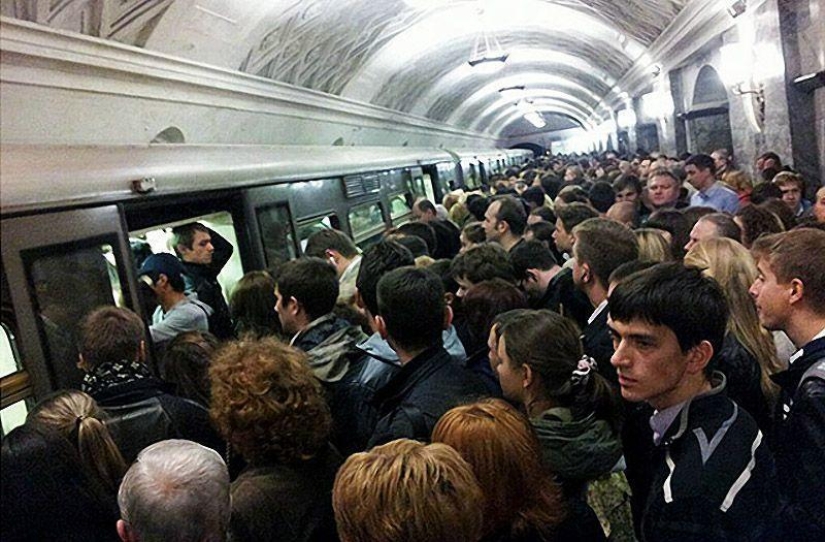
14. "Moscow stands" both above and below. So what should Muscovites do to change the situation?!
Keywords: Car | Metro | Moscow | Traffic jams | Transport
Post News ArticleRecent articles

It's high time to admit that this whole hipster idea has gone too far. The concept has become so popular that even restaurants have ...

There is a perception that people only use 10% of their brain potential. But the heroes of our review, apparently, found a way to ...
Related articles

It is now the so-called Khrushchevki khayut and threaten to level with the ground. And 50 years ago, these squat houses saved the ...

A resident of Russia has a question "And who will do this for you? Pushkin? " does not cause the slightest surprise. Everyone ...

Russian freelance artist Nikolai Kurganov draws girls. No, he is not inspired by the images of sex bombs and vamp women-the ...

New Year's is a time to surprise and delight loved ones not only with gifts but also with a unique presentation of the holiday ...